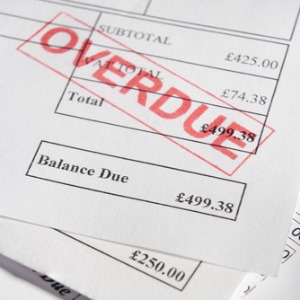Just two practices hit by payment problems since the New Year, claims NHS England

Exclusive NHS bosses claim that they are taking steps to resolve the payment problems that have plagued practices in England since last April, with reports of new issues from just two practices last month.
But the GPC said that it continued to get reports from practices having problems and that practices are struggling to get area teams to respond to requests ‘in a timely manner’.
The figure comes as a Pulse survey of 460 GPs reveals that although the number reporting ongoing payment problems has dropped, a quarter still report that they have ongoing issues with payments.
Of the GPs responding to Pulse’s survey last month, 26% reported ongoing problems with payments. This compares with a similar survey run by Pulse last October, which showed that 46% of GPs were reporting ongoing problems.
The survey also reveals the extent of the impact of the payments chaos on practices, with 23% of GPs saying they had to take out or extend a bank loan or overdraft to pay bills and 19% having to delay paying utility bills.
Asked to list examples, several GPs mentioned delayed LES and DES payments as well as problems with understanding what payments were for.
Over half of practices (54%) said they had to phone NHS England to chase payments as a result of problems over the past year, while around a third (32%) said they had written letters and 13% had sought the help of LMCs.
NHS England’s head of primary care commissioning Dr David Geddes promised in November that all payment problems would be resolved by April and managers said that GP practices would receive statements giving a detailed breakdown of what payments were for.
But Dr Diana Lowry, a GP partner in Epping, said: ‘It is very difficult to keep track of payments now because they come from all sorts of different places with no guidance as to what they are for.’
Another GP, who did not supply their name, said: ‘A child immunisation payment from September 2012 is now due to be paid in February 2014.’
Related articles
GPs told to avoid asking NHS England questions due to staff shortages
Analysis: Payments in disarray
Five steps to check your payment claims system is watertight
A spokesperson from NHS England said it had ‘taken a number of steps’ to resolve the problems and it was working with the BMA who had reported only two instances where practices received late payments since the beginning of the year.
The spokesperson said: ‘Since the start of January, we have become aware of two practices who have payments issues, and in both cases these are issues with payments being delayed from their CCGs.
‘We have alerted the area team in each case and asked them to discuss and establish the position with the CCGs, and ask those two CCGs to resolve the issues going forward.’
The spokesperson added that NHS England had also asked CCGs to review the timing of their payments to ensure they were on time, and passed on concerns over payment issues regarding public health payments from local authorities to the Local Government Association and Association of Directors of Public Health.
But Dr Chaand Nagpaul, chair of the GPC, said that the problems reported to the BMA were only the tip of the iceberg and that NHS England needed to respond better to requests for help from practices.
He said: ‘We continue to get reports from practices having problems but even more importantly, on a daily basis, practices are reporting far greater difficulties in accessing the right individual to even query issues around their payments.
‘This is an inevitable result of the fact that we have more remote area teams and fewer staff. Therefore these ongoing issues around communication are also a problem for GPs. So it is not just about whether they are paid, but also how they can query payments due, or any other queries around discretionary payments.’
He added: ‘I think it is important for NHS England to respond to the realities expressed by GPs. Our feedback is that there are still continued problems, and it simply is because area teams are overstretched and there isn’t enough staff to respond to requests in a timely manner.’
Is your practice still experiencing problems with missing payments from NHS England?
Yes – 26%
No – 31%
Don’t know – 43%
What action has your practice taken to chase payments?
Phoned to chase – 54%
Written letters to chase – 32%
Sought LMC help – 13%
Went to small claims court – 0%
Source: Pulse survey of 460 GPs – full results and explanation of methodology here
Pulse October survey
Take our July 2025 survey to potentially win £1.000 worth of tokens











